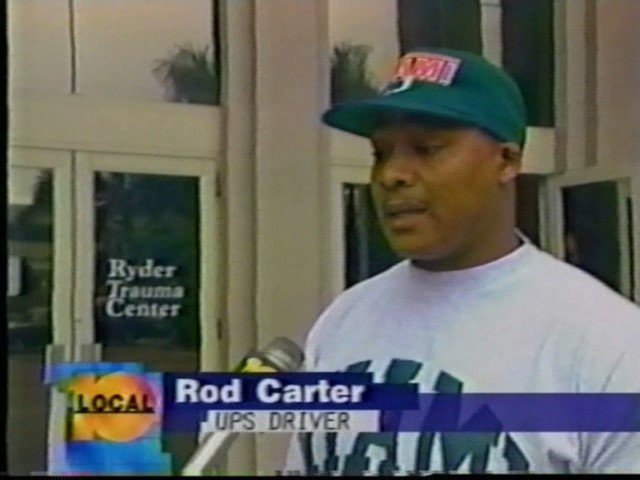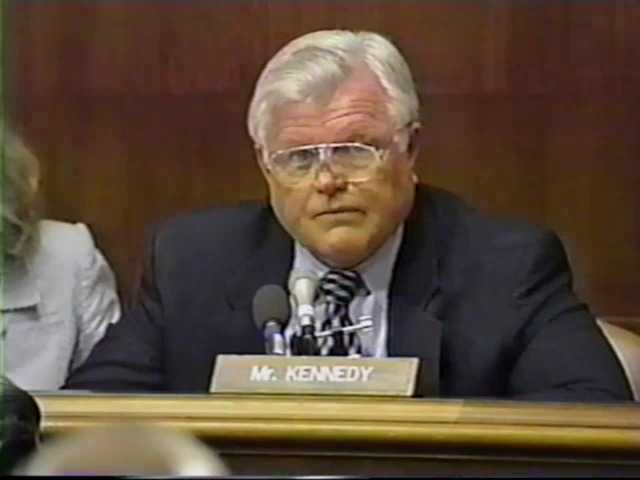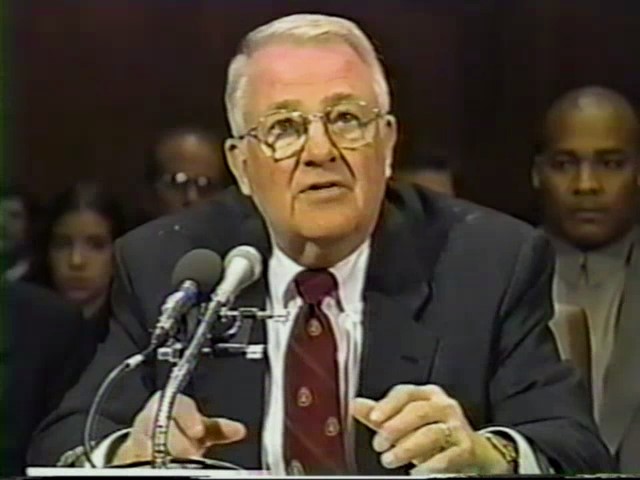Is This Any Way to Run a City’s Schools?
Leaked CTU Proposals Won’t Do Anything to Improve Schools’ Poor Performance

Twenty-five years ago this summer, United Parcel Service (UPS) driver Rod Carter was stopped at a red light, when he was waylaid by six men shouting racial slurs, removed from his truck, then beaten in broad daylight.
One of the assailants, Benigno “Benny” Rojas, stabbed Mr. Carter repeatedly with an ice pick. Mr. Carter may have survived only because a green light forced his would-be murderers to flee back to their vehicle.
Mr. Rojas and the five other assailants who left Mr. Carter bleeding on the pavement in Miami, Fla., in August 1997 were all Teamster union militants.

And their motive was obvious: On the evening before the vicious attack, Mr. Carter was interviewed on TV and stated he would continue working during the nationwide Teamster UPS strike that was then underway, in order to provide for his family.
Interviewed much later about the assault, Mr. Carter reported he was still suffering from repercussions: “I have nightmares, cold sweats, I can’t sleep at night.”
In 1999, he reported he was still worried about the safety of his wife and their two daughters in their home.
When he first learned about Rod Carter’s ordeal, then-National Right to Work Committee and National Right to Work Legal Defense Foundation President Reed Larson was appalled, but not surprised.
That summer, Mr. Larson was preparing to testify to the U.S. Senate Judiciary Committee about the national scourge of union violence and what lawmakers could do about it at a hearing that was to be covered live coast to coast on C-SPAN.
At the two-hour hearing on September 3, 1997, Mr. Carter joined with a number of other victims of union violence and Mr. Larson in pleading with Congress to close a judicially-imposed loophole in the federal Hobbs Anti-Extortion Act. Because of this loophole, criminal union bosses are often exempt from prosecution under the Hobbs statute.
Mr. Carter opted not to speak. Instead, he personally appeared before the committee to submit a written statement, accepted by Chairman Orrin Hatch (R-Utah).
In acknowledging Mr. Carter’s presence, Mr. Hatch quoted the words of the UPS driver who had nearly lost his life, regarding his fellow employees who disagreed with him:
“They have the right to strike, and I have the right to work. My family is more important than the union or UPS.”
The response of Sen. Ted Kennedy (D-Mass.), Big Labor’s chief water carrier on Capitol Hill until he passed away in 2009, was telling.
Ignoring Mr. Carter, seated just a few feet away, and reports of more than 170 other acts of UPS strike violence submitted to Judiciary panelists, the senator praised the strike as a model of probity with only “minor” violence.

As Reagan Attorney General Ed Meese explained in his Judiciary Committee testimony delivered that day, the Hobbs Act exemption for violence and threats committed to advance “legitimate union objectives” is “really foreign to American jurisprudence.”
He elaborated: “In no other context does the statute put Congress essentially in the position of saying that the end justifies the means as it applies to a particular class of criminals or organizations.”
The Hobbs loophole decried by Mr. Meese and a wide array of other jurists over the years is a result not of faulty lawmaking, but of judicial activism.
In 1973, a bare 5-4 majority on the U.S. Supreme Court granted union bosses immunity for “unlawful union violence used to gain legitimate union objectives” in U.S. v. Enmons.
As a consequence of Enmons, no union official was ever held accountable for orchestrating the attack on Rod Carter, even though witnesses’ sworn testimony stated Teamster bosses had encouraged union militants to follow and harass employees who worked during the strike and to break the law.
One member testified: “I personally witnessed [Teamster Local 769 officer] Tony Cannestro telling union members that he had bail bondsmen and lawyers available for those who happened to commit a crime.”
In the end, only one of the assailants who participated in the attack on Mr. Carter did any jail time.
And that was just 12 months.
With free legal assistance from Right to Work Foundation attorneys, Mr. Carter and his wife filed a state racketeering and civil conspiracy case against Local 769, which was settled in 2001.
Under the terms of the settlement, the Carters and their attorneys are barred from revealing any specific details.
Mark Mix, who was a Right to Work Committee vice president in 1997, and became Committee and Foundation president in 2003, after Reed Larson announced he was stepping away from the organization’s top leadership positions, reflected on what has been accomplished since 1997, and what remains to be done:
“Thanks to the Right to Work Foundation and its members and supporters, Rod Carter was able to subpoena witnesses and phone records to build the case that Local 769 officials had sanctioned violence during the UPS strike.
“And the spotlight put on Big Labor violence by the Committee and the Foundation increased the pressure on Congress to close the Enmons loophole. Since the misbegotten Enmons decision is a matter of statutory, not constitutional, interpretation, Congress has the power to fix it.
“Unfortunately, 25 years after Rod Carter was pulled out of his truck and nearly stabbed to death, Enmons is still in effect.
“The Committee will keep fighting until Enmons is tossed into the dustbin of history.
“Currently, Committee staffers are recruiting cosponsors for H.R.5171, a bill introduced last September by pro-Right to Work Congressman Scott Perry [R-Pa.].
“H.R.5171 would close the Enmons loophole and hold union bosses who resort to threats and violence to secure Big Labor’s objectives accountable under the Hobbs Act, just as everyone else already is.”
This article was originally published in our monthly newsletter. Go here to access previous newsletter posts.
To support our cause and help end forced unionism, go here to donate.

Leaked CTU Proposals Won’t Do Anything to Improve Schools’ Poor Performance

Wherever Big Labor wields the power to collect forced union dues, union bosses funnel a large share of the confiscated money into efforts to elect and reelect business-bashing politicians. Employment growth tends to lag as a consequence.

Members Insist They Keep Pro-Right to Work Campaign Promises